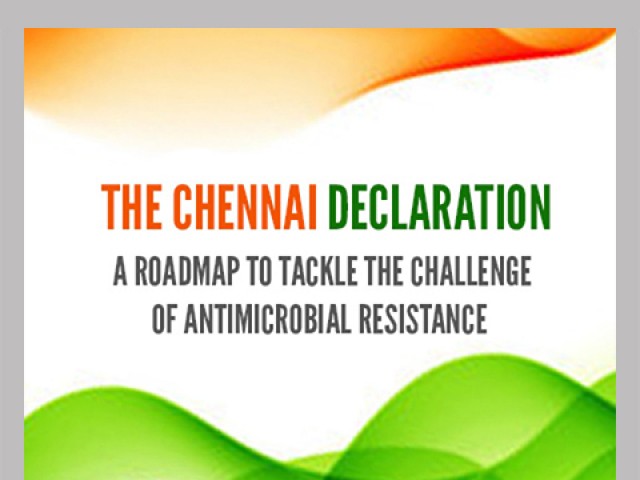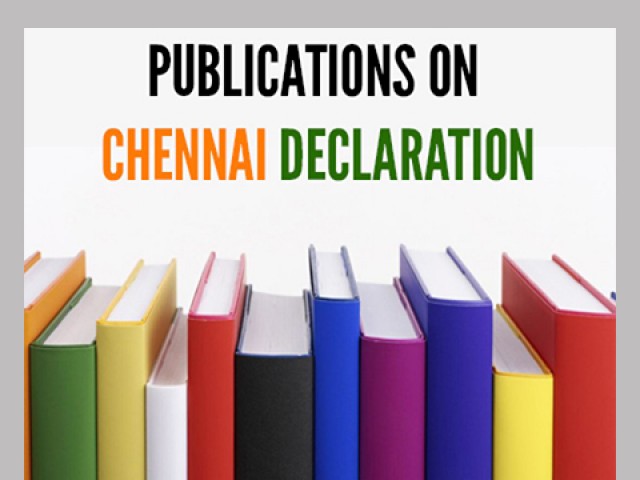“A Roadmap to Tackle the Challenge of Antimicrobial Resistance – Joint meeting of Medical Societies in India” 2012, was the first ever meeting of medical societies in the country on the AMR issue.
All stakeholders including representatives of medical societies, various Governmental bodies, media, academics and international representatives came under one roof to discuss the issue.
The aim was to formulate implementable recommendations to tackle antimicrobial resistance in India. The Road map meeting led to creation of the document -“The Chennai declaration”.
The declaration is based on the theme of “a practical but not a perfect policy” and step-by-step implementation of various components in a developing country.
Progress of the Chennai declaration initiative
- Chennai declaration document was reviewed in detail in more than a dozen reputed international journals, many international academic and health policy related conferences.
- Highest officials in Indian Ministry of Health studied the document.
- Chennai Declaration could convince Indian authorities on seriousness of the resistance scenario in the country and importance of taking measures to control it.
- The initiative could mobilise medical societies and all the other stakeholders.
- The initiative has also created international awareness regarding the ground reality in developing countries and how a policy has to be tailored as per local requirement.
- Efforts by Chennai declaration through interaction with the ministry, creation of public and professional awareness via media, journals, and meetings, and inspiring of political leadership to discuss the issue in the Indian parliament did speed up the publication of the new over-the-counter rule.
- The new rule issued by the ministry of health includes 24 antibiotics and 11 antituberculosis drugs in the schedule H1 category. This rule is meant to regulate over-the counter dispensing of drugs. Pharmacists not only have to insist on a prescription from a registered medical practitioner, but they also need to enter details in a register. Drug inspectors will monitor compliance. First-line antibiotics will not come under the strict monitoring as those are excluded from the list, at least initially. The new H1 list is based on a step-by-step strategy of Chennai declaration.
- Ministry of Health published National antibiotics guidelines.
- Ministry of Health launched public education initiatives via print media and radio channels.
“Chennai Declaration-Five Year Plan”
In tune with the basic spirit of the Declaration – a ‘Practical not Prefect’ approach – Chennai declaration team proposed a 5‑year strategy to control antibiotic resistance.
Five-year action plan prepared by the Chennai declaration team can be implemented in hospitals in all developing countries, including India.







